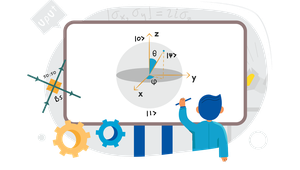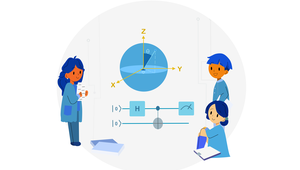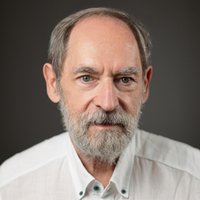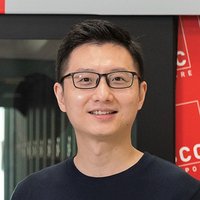Welcome to Quantum Mechanics II
Ref. QTC002
In the second introductory course, we explore further two-qubit state space and entanglement. The concept of indistinguishability of fundamental particles are also discussed.
What you will learn
At the end of this course, you will be able to:
Know about
- State operators, statistical operators
- Pure states, mixed states; completely mixed state
- Qubit state space (Bloch ball)
- Unitary transformations of qubits
- Quantum Zeno effect
- 15-dimensional qubit-pair state space
- Separable vs entangled states
- Maximally entangled states
- Entanglement monogamy
- Identical particles, Hong-Ou-Mandel effect
Description
This course is for people who are new to Quantum Information and Computing, such as students, engineers, developers, etc., and would like to develop basic understanding of the concepts and tools used in Quantum Mechanics.
The course expands on the basic concepts and notions introduced in Welcome to Quantum Mechanics I and provides more advanced tools for the description of quantum systems.
Continued by the course Welcome to Quantum Mechanics III.
Prerequisites
High School Math, Basic algebra;
this course is the sequel to Welcome to Quantum Mechanics I
Course plan
- 2.1 Trace of an operator
- 2.2 Expectation value of a property
- Operator for the property
- Operator for the state (statistical operator)
- 2.3 Probabilities, general Born rule
- 3.1 Positivity, self-adjointness (hermiticity), unit trace
- 3.2 Pure states, mixed states
- 3.3 Convex sums
- Many blends for the same mixed state; convex sums
- The completely mixed state
- 4.1 Properties of Pauli operators
- 4.2 All operators are linear functions of the Pauli operators
- 4.3 Qubit states
- Pauli vector (Bloch vector) specifies the state
- The Bloch ball and its surface, the Bloch sphere
- 5.1 Standard form of unitary 2x2 matrices
- 5.2 Standard form of unitary qubit operators
- 5.3 Unitary transformations rotate the Bloch vector
- 6.1 Two successive rotations are one rotation
- 6.2 Rotating by a large angle as many rotations by small angles
- 6.3 Intermedite control measurements: Quantum Zeno effect
- 7.1 Single-qubit Pauli operators revisited
- 7.2 Qubit pairs
• Tensor products of single-qubit kets
• Tensor products of single-qubit operators - 7.3 The two-qubit singlet state
- 8.1 Two Bloch vectors plus one cross dyadic
• Convex sums of products states: separable
• Other two-qubit states: entangled - 8.2 Counting parameters: 3+3+9=15
- 9.1 Outcome probabilities, conditional probabilities, state reduction
- 9.2 Positively, negatively correlated outcomes
- 9.3 Bell’s inequality violated
- 10.1 Partial traces yield completely mixed states
- 10.2 Entanglement monogamy
- Two identical photons meet at a half-transpatent mirror
- When both a relected or both are transmitted we cannot know which is the case
- The Hong-Ou-Mandel effect
This course is part of a program
Course team
Prof. Berge Englert
PI at Centre for Quantum Technologies, National University of Singapore (CQT, NUS)
Dr. Dai Jibo
Scientific Project Coordinator (CQT, NUS) & Quantum Talent, National Quantum Computing Hub (NQCH)
Organizations

Beginner

The National Quantum Computing Hub

Everyone
License
License for the course content
What is the license for the course content?
License for the content created by course participants
What is the license for the content created by course participants?




